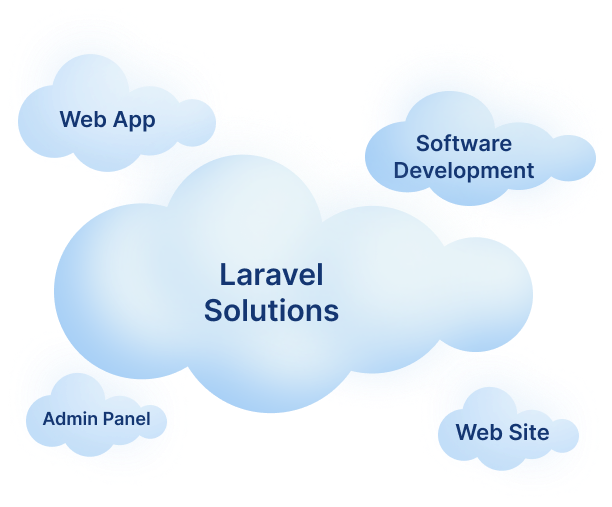We are expert in custom crm development of several sorts depending on the particular sector or company requirements they serve. Here are a few illustrations of several CRM system types:
Sales CRM development:
focuses on pipeline management, lead development, sales performance tracking, and process management for sales. Lead scoring, opportunity monitoring, sales forecasting, and connectivity with sales automation systems are a few possible features.
Marketing CRM development:
focuses on lead nurturing, marketing analytics, customer segmentation, and campaign management. Email marketing, social media integration, consumer segmentation, campaign management, and analytics for gauging campaign efficacy are a few examples of features.
Service CRM (Support CRM) development:
focuses on handling ticketing systems, helpdesk features, customer service processes, and customer support interactions. Self-service portals, knowledge base integration, ticket management, case escalation, and service-level agreement (SLA) tracking are a few possible features.
Ecommerce CRM development:
created especially to handle client communications and transactions on e-commerce sites. Order management, tracking of cart abandonment, gathering client feedback, tailored suggestions, and loyalty program administration are a few examples of features.
Healthcare CRM development:
designed specifically to handle patient interactions, medical records, appointment scheduling, and patient relationships for healthcare practitioners. Patient feedback management, medication reminders, telemedicine capabilities, electronic health record (EHR) integration, and patient portals are a few examples of features.
Telecom CRM (Telecommunications CRM) development:
designed to handle client contacts, service requests, billing, and subscriptions for telecom firms. Account administration, invoicing and billing, service activation and deactivation, customer support integration, and data analytics for use trends are a few possible features.
Hospitality CRM development:
designed to handle reservations, guest interactions, loyalty programs, and guest preferences in hotels, resorts, and hospitality enterprises. Reservation management, visitor profiles, interaction with reward programs, feedback gathering, and customized guest messages are a few examples of features.
Real Estate CRM development:
designed specifically for real estate professionals and agencies to handle lead generation, transactions, property listings, and client interactions. Features might be contract administration, lead tracking, property listing management, client communications, and analytics for market trends.
Nonprofit CRM development:
designed to handle donor communications, fundraising campaigns, donor relationships, and gift monitoring for charitable organizations. Donor management, donor segmentation, fundraising campaign monitoring, event administration, and reporting for fundraising initiatives are a few examples of features.
Education CRM development:
specifically designed to handle communications, academic records, admissions, student relationships, and alumni participation in educational institutions. Features might include alumni connections, course scheduling, academic progress monitoring, student enrollment management, and program fundraising.
Financial Services CRM development:
Developed to handle customer interactions, financial portfolios, investment possibilities, and regulatory compliance for banks, financial institutions, and wealth management companies. Financial planning tools, investment tracking, risk assessment, client account management, and compliance reporting are a few examples of features.
Insurance CRM development:
specifically designed to handle policyholder interactions, insurance policies, claims processing, underwriting, and insurance sales for insurance businesses and agents. Policy administration, lead generation, renewal reminders, claims monitoring, and interaction with insurance quote systems are a few possible features.
Manufacturing CRM development:
designed to handle supply chain interactions, sales orders, inventory monitoring, customer connections, and production workflows in manufacturing organizations. Production scheduling, supplier relationship management (SRM), inventory control, sales order management, and quality control monitoring are a few examples of features.
Legal CRM development:
specifically designed to handle client interactions, case data, billing, document management, and legal project processes for law firms and legal practitioners. Case administration, time tracking, document archiving and retrieval, billing and invoicing, client communications, and dispute resolution management are a few possible features.
Retail CRM development:
created specifically for retail companies to handle omnichannel marketing, inventory management, sales transactions, and customer interactions. Customer segmentation, inventory monitoring, point-of-sale (POS) integration, marketing automation, and tailored customer messaging are a few examples of features.
Automotive CRM development:
specifically designed to handle client contacts, car sales, service appointments, parts inventories, and customer satisfaction for auto dealerships, manufacturers, and service facilities. Lead management, tracking vehicle inventories, appointment scheduling, maintenance alerts, customer feedback management, and owner-targeted marketing campaigns are a few examples of features.
Travel and Tourism CRM development:
designed to handle client reservations, travel schedules, reward programs, and visitor experiences for travel agencies, tour operators, airlines, and lodging providers. Personalized travel suggestions, booking management, itinerary modification, interaction with reward programs, and guest feedback gathering are a few examples of features.
Technology CRM development:
specifically designed to handle client interactions, sales funnels, software licenses, support requests, and product development for technology companies, software suppliers, and IT services organizations. Lead tracking, software licensing administration, support ticketing, product roadmap planning, gathering client feedback, and subscription management are a few possible features.
Fitness and Wellness CRM Development:
designed to handle membership subscriptions, class scheduling, member relations, and fitness programs for gyms, fitness studios, wellness centers, and personal trainers. Member profiles, class scheduling, payment processing, fitness evaluations, and customized training regimens are a few examples of features.
Consulting CRM development:
specifically designed to handle client engagements, project schedules, billing, client interactions, and business growth for consulting businesses, professional service providers, and independent contractors. Project administration, time monitoring, billing, resource allocation, managing client feedback, and a client portal for document sharing and collaboration are a few examples of features.
Energy and Utilities CRM: development:
Designed to handle customer interactions, billing, service requests, meter readings, and energy consumption statistics for energy corporations, utilities providers, and renewable energy companies. Customer billing management, energy use monitoring, field service scheduling, outage management, and energy efficiency advice are a few possible features.
Construction CRM:
Designed to handle customer interactions, bids and proposals, project schedules, subcontractor management, and project documentation for construction businesses, contractors, and building firms. Project management tools, contract management, bid monitoring, document sharing, progress tracking, and client communication portals are a few examples of features.
Pharmaceutical CRM development:
Developed to handle physician connections, sales contacts, medication information, regulatory compliance, and sales performance for pharmaceutical corporations, biotech businesses, and healthcare providers. Sales force automation, sample management, physician profiling, regulatory reporting, compliance monitoring, and marketing campaign analytics are a few possible features.
Food and Beverage Distribution CRM development:
Designed to help distributors, wholesalers, and suppliers handle supply chain logistics, order processing, inventory control, and customer interactions. Order management, supply relationship management (SRM), inventory tracking, route optimization, warehouse management, and delivery tracking are a few possible features.
Human Resources (HR) CRM development:
Designed to handle hiring procedures, performance reviews, onboarding of new hires, applicant interactions, and training programs for HR departments and staffing firms. An application tracking system (ATS) integration, tools for sourcing candidates, interview scheduling, personnel records management, performance evaluations, and HR analytics are a few examples of features.
Public Relations (PR) CRM development:
Designed to handle client relationships, press releases, event planning, media outreach, and campaign monitoring for PR agencies, marketing communications companies, and media relations teams. PR campaign analytics, influencer outreach, press release distribution, media monitoring, event planning, and media database management are a few possible features.
Event Management CRM development:
Designed to handle client connections, event reservations, participant registrations, event logistics, and follow-ups after the event for event planning businesses, conference organizers, and venues. Event calendar management, ticketing systems, speaker management, sponsor coordination, audience feedback gathering, and attendance registration portals are a few examples of features.
Legal Compliance CRM development:
Designed to handle regulatory requirements, compliance audits, risk assessments, policy documents, and training programs for regulatory compliance departments, legal teams, and compliance officers. Audit trails, policy management, risk assessment instruments, incident reporting, training modules, and compliance analytics are a few examples of features.
Security and Surveillance CRM development:
Designed to handle client contracts, security incidents, alarm monitoring, patrol schedules, and security equipment inventory for security businesses, surveillance companies, and monitoring services. Contract administration, incident reporting, equipment maintenance monitoring, patrol route optimization, client portal for security reports, and compliance paperwork are a few possible features.
Agriculture CRM development:
Designed to handle client interactions, crop planning, harvest scheduling, supply chain logistics, and sales of agricultural products for farms, agribusiness enterprises, and agricultural businesses. Crop management tools, harvest monitoring, supply chain optimization, processing sales orders, upkeep of farm equipment, and agricultural analytics are a few examples of features.






















